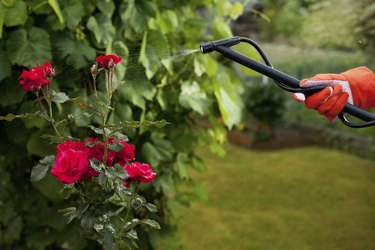
While many people use the terms insecticide and pesticide interchangeably, they are not precisely the same. They have overlapping but not identical uses. However, pesticides and insecticides must be used with caution, because they are made from powerful chemicals which can cause considerable harm if misused.
Definition of Pesticide
Video of the Day
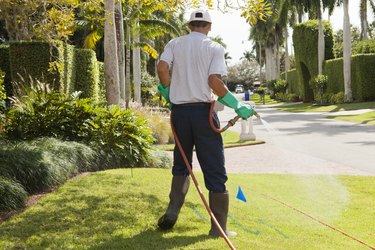
Pesticide is a broad category of chemicals which are used to kill or eliminate pests on plants which are cultivated for landscaping or agriculture. While many pesticides are insecticides, there are other types of pesticides as well. For instance, there are pesticides that work against weeds, pesticides that work to kill fungi, and even pesticides to repel fish or mammals that threaten plants.
Video of the Day
DDT
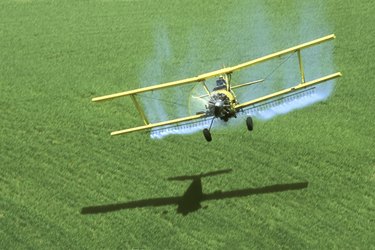
Dichloro-diphenyl-trichloroethane (DDT) is a common pesticide which became infamous when it was singled out in Rachel Carson's 1962 book "Silent Spring." As a result, DDT has been banned in much of the Western world but is still in use in the developing world, particularly in areas where malaria is prevalent.
Definition of Insecticide
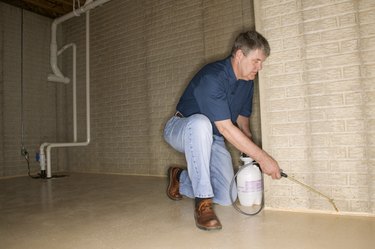
An insecticide is a type of pesticide which is specifically formulated to use against insects. Insecticides may be used to kill adult insects or larvae. Insecticides also work by preventing insects from reproducing, so that when the adults die there are no new insects to replace them.
Uses for Insecticide
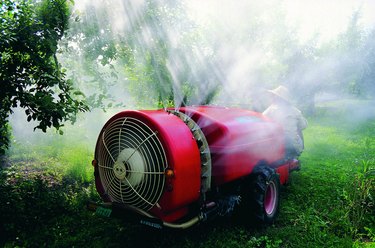
Like other pesticides, insecticides may used in agriculture. However, insecticides are also often used to kill household pests. When used against household pests, insecticides may or may not be applied to plants or landscaping.
Considerations
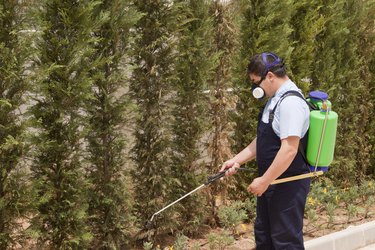
Many pesticides and insecticides are toxic to humans or animals. This is especially true if they are ingested or if long term exposure is involved. Proper usage, including wearing protective gear, is important when handling many pesticides and insecticides. When used in the home, pesticides should be kept well out of the reach of children.